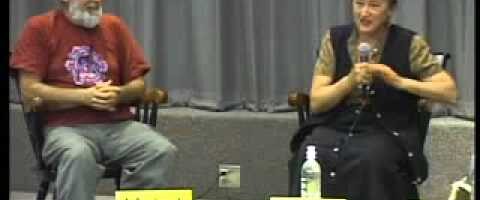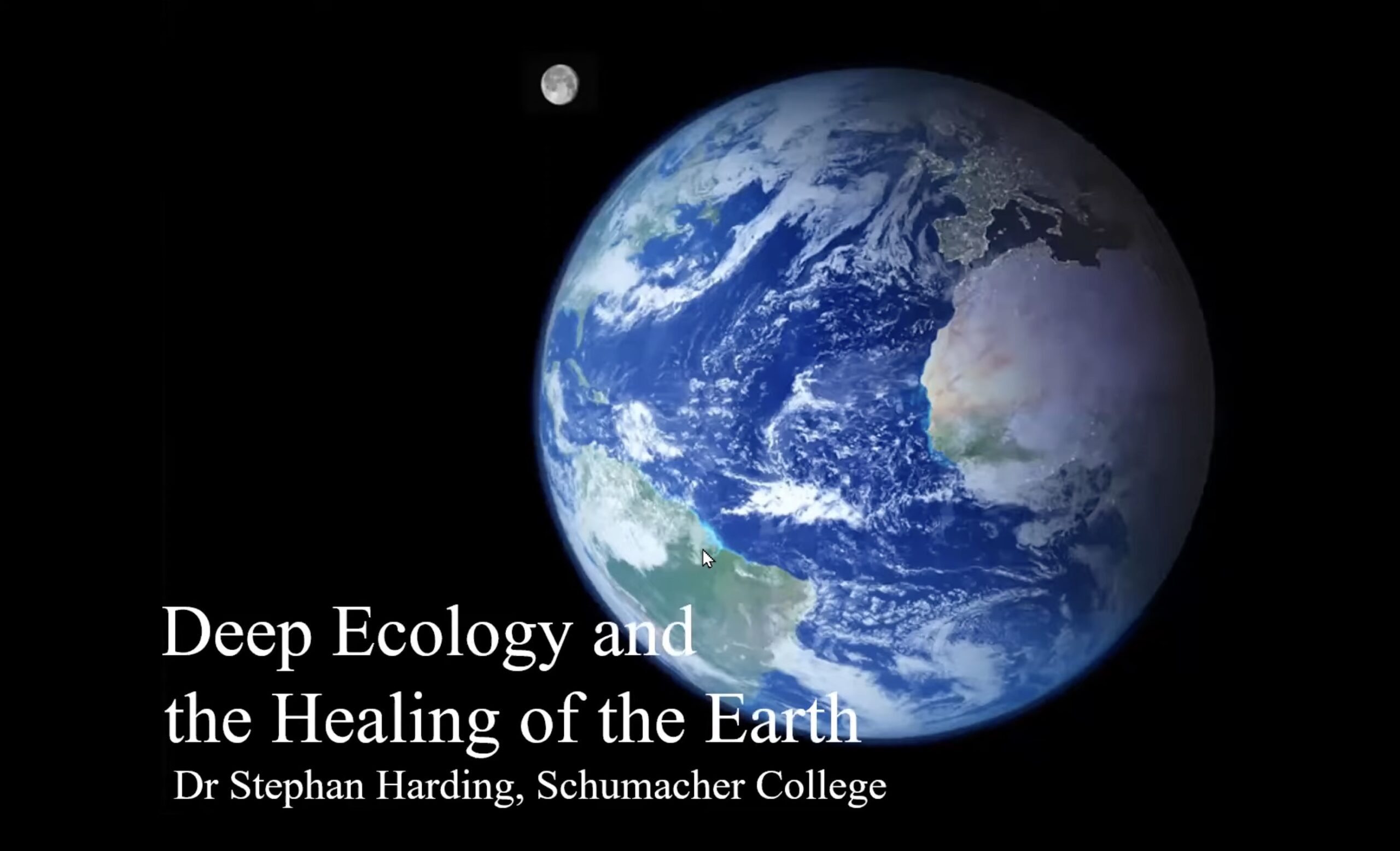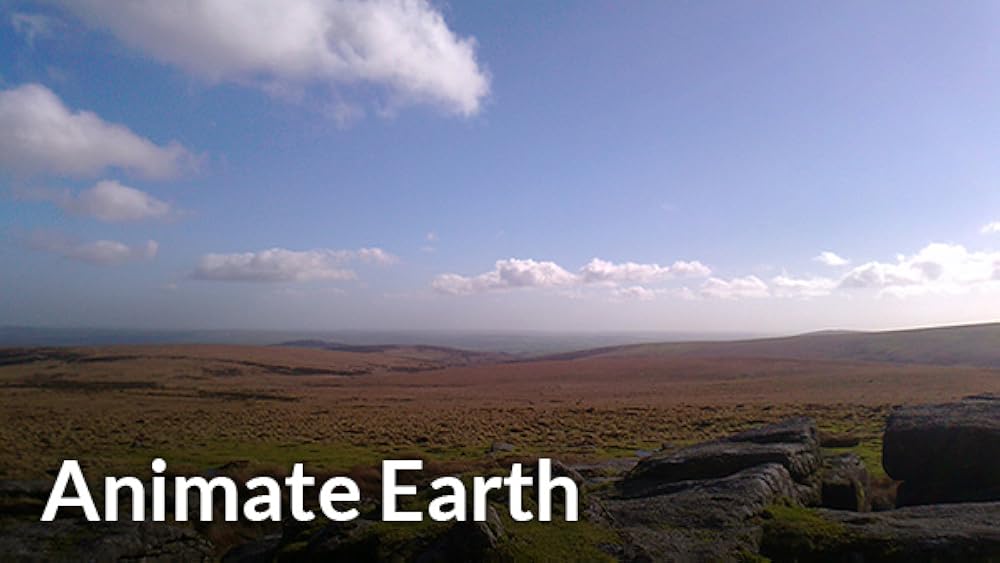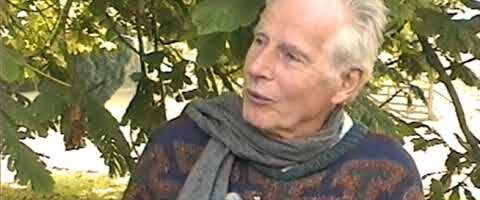Deep Ecology: Multimedia
Further resources, if available, can be found in our full bibliography.
“Activism, Deep Ecology & the Gaian Era–Lynn Margulis, Stephen Buhner and John Seed”
Lynn Margulis, Stephen Buhner, and John Seed speak to a crowd at Amherst College in 2005.
Episode 2.42, Philosophy, Zen, and Ecology with Jason Wirth
This episode of Spotlights features Jason Wirth, professor of philosophy at Seattle University, Soto Zen priest, and the founder and co-director of the Seattle University EcoSangha (www.ecosangha.net). He and Sam Mickey talk about his capacious engagements with Continental philosophy, Buddhism, ecological thought, Indigenous lifeways, and more. They discuss some of his books, including Nietzsche and Other Buddhas: Philosophy after Comparative Philosophy (Indiana 2019), Mountains, Rivers, and the Great Earth: Reading Gary Snyder and Dōgen in an Age of Ecological Crisis (SUNY 2017), and Schelling’s Practice of the Wild (SUNY 2015). Incidentally, this conversation took place on a US National Holiday, July 4 (Independence Day), so the conversation naturally includes some political reflections, touching on topics of democracy, freedom, anarchy, and deep social ecology.
“Stephan Harding | Deep Ecology and the Healing of the Earth | Holistic Science Public Lecture”
As part of their Holistic Science Public Lecture series, the Dartington Trust was joined by Stephan Harding, one of the founding members of Schumacher College. The term “deep ecology” was coined and developed in the 1970s by the eminent Norwegian philosopher and mountaineer, Arne Naess, as his contribution to solving the global ecological crisis. This talk explores how deep ecology encourages people to develop wisdom by focusing on three interconnected aspects of depth: deep experience, deep questioning, and deep commitment, which give rise to and support each other. Harding also focuses on the life and work of some key ecological thinkers and activists. The video then takes viewers on a journey to Arne’s cabin in the high mountains of Norway to explore ways of applying his insights to develop one’s own ecosophy. With this, viewers may ponder how to contribute towards solutions in the accelerating planetary crisis.
Animate Earth
Featuring leading scientists, ecologists and authors, Animate Earth makes the case for a new holistic scientific revolution as an essential step towards solving the environmental crises created in large part by conventional science’s mechanistic view of the Earth. 400 years ago the scientific revolution influenced humanity’s disconnect from nature. Despite its many benefits, the approach encouraged people to think of nature as something solely to exploit to meet our needs. Now, with current environmental dangers and uncertainties, the film articulates the need for another scientific revolution, one that reconnects us with the planet by viewing the Earth as a living system, as an animate being. Animate Earth is presented by Stephan Harding, Oxford-trained biologist, renowned ecologist, and colleague of British scientist James Lovelock, originator of the Gaia Theory. The film also features commentary from Brian Goodwin, Iain McGilchrist, Fritjof Capra, Vandana Shiva, Jules Cashford, and Satish Kumar.
“Dr. Stephan Harding – Gaia Theory & Deep Ecology”
In this ten-part conversation, Stephan Harding invites viewers into a new understanding of their relationship to Earth through the lenses of Gaia Theory and Deep Ecology.
“The Deep Ecology Movement, with Dr. Alan Drengson”
Alan Drengson explains the origins and principles of the deep ecology movement, while speaking of its founder, Norwegian philosopher Arne Naess. In particular, Drengson identifies the importance of contextual knowledge and of engaging conversations at the intersections of difference. Radio interview by Simon R. Watson and Jordan Poppenk for the Green Majority on CIUT 89.5 FM at the University of Toronto.
The Call of the Mountain: Arne Naess and the Deep Ecology Movement
1500 meters above sea level, on the slope of the mountain Hallingskarvet, stands “Tvergastein,” the cabin of Norwegian philosopher Arne Naess. In his life he has spent nearly 12 years in this hut, where he wrote several books and essays on philosophy and ecology. In this film, Naess talks about the concept of “deep ecology” which he first introduced in 1973. One of the basic tenets of deep ecology is that nature has a value in itself, apart from its possible use value to humans. Next to being a famous mountaineer, Naess has been a longtime activist in the environmental movement. He gives an inspiring account of his participation in blockades to prevent the Alta river in northern Norway (the area of the Sami, an Indigenous people) from being dammed. With contributions by Helena Norberg-Hodge, Vandana Shiva, Bill Devall, George Sessions, and Harold Glasser. A shorter version can be found here.
Photo Credit: Nick Windsor/Unsplash







